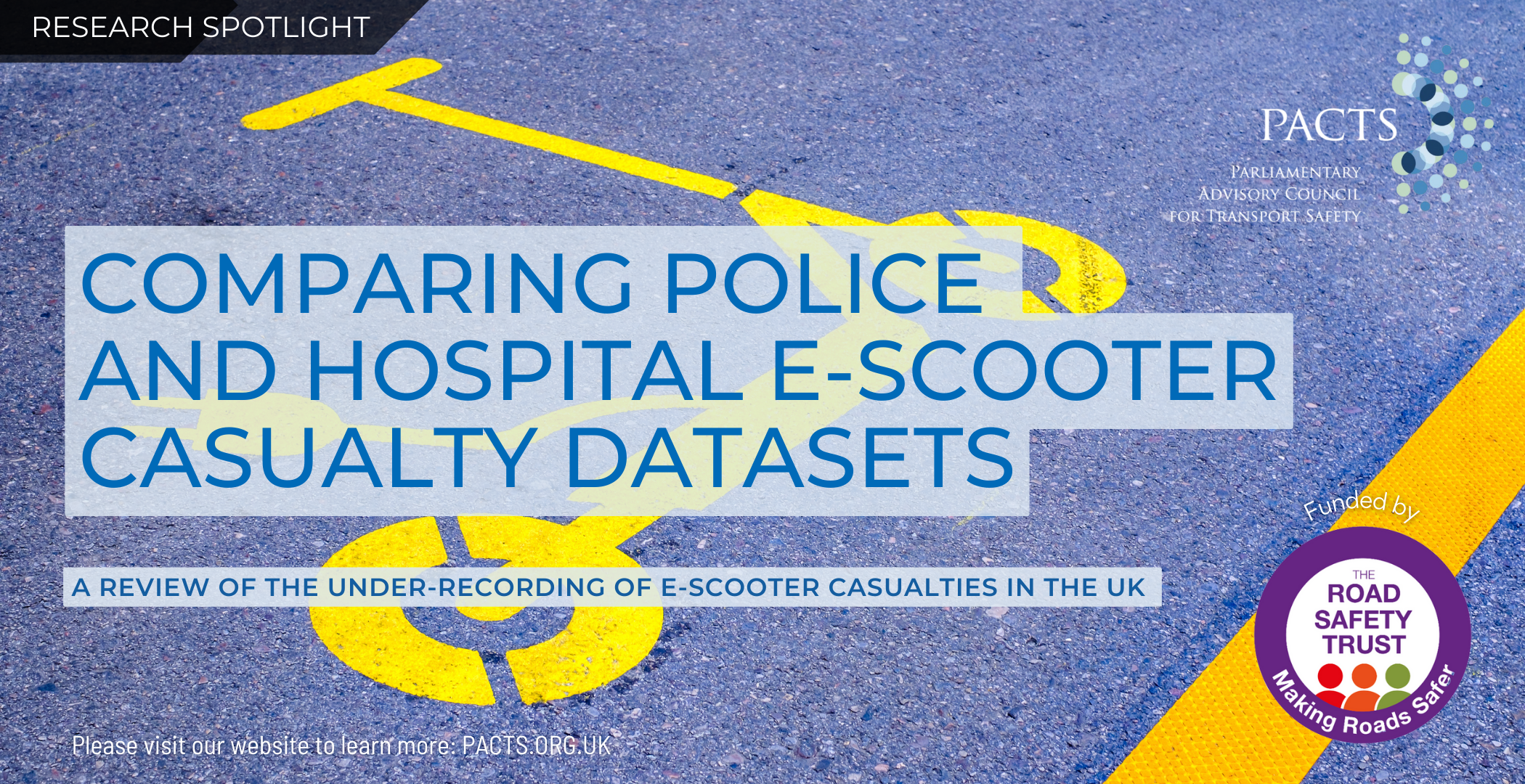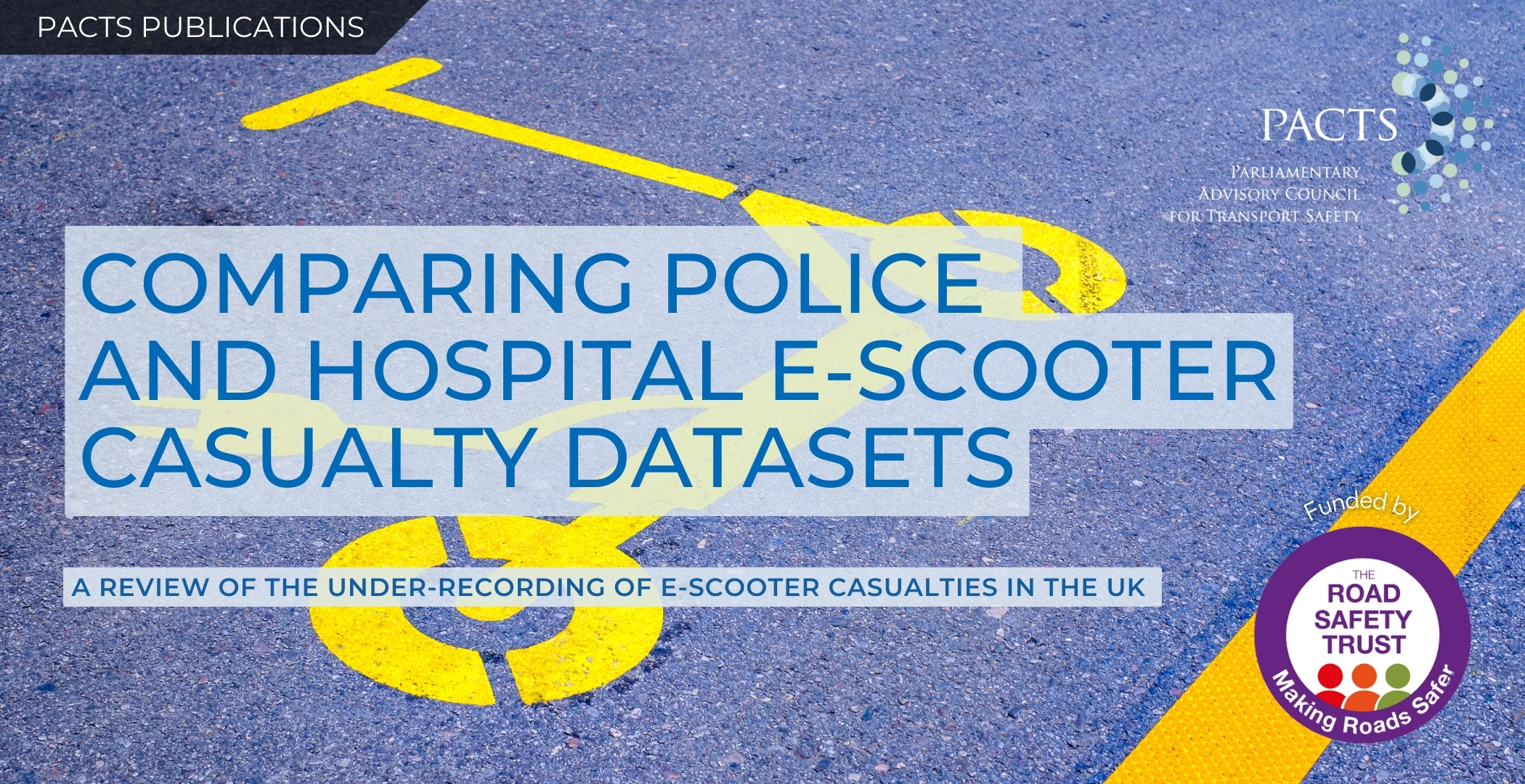
Building on previous extensive research into the safety of private e-scooters, PACTS has published a study investigating the extent of under-recording of injury collisions involving e-scooters. By analysing data from two months in late 2021 PACTS looked at 300 casualties recorded by hospitals across the UK, police records and data from the rental trials to identify matches between the different datasets.
Knowing how many people are injured in road traffic collisions is important. It means that, for any form of transport, the risk of harm to the driver or rider and the risk of harm to other road users can be better understood. The official data for all road traffic casualties, regardless of type of mobility, are based on police records. It has long been recognised and accepted that when comparing the official data with the number of people presenting at hospital with an injury from a road traffic collision, there are discrepancies.
This study found that:
- Fewer than 10% of casualties with any level of injury from a collision involving an e-scooter presenting to emergency departments were recorded in the official data;
- Around a quarter of those most seriously injured in collisions involving e-scooters were recorded by both the police and at hospitals.
e-scooters, be they in the regulated rental trials or privately owned, are classed as motor vehicles. Collisions resulting in injury should be reported to the police. Capturing data from collisions with illegally ridden private e-scooters may be difficult. That should not be the case for the 23,000 rental e-scooters in the Government run trials.
PACTS calls on the DfT to:
- Improve the means of recording e-scooter casualties using the rental e-scooter schemes by updating guidance to operators and local authorities so data collection more closely aligns with recording systems the police use; and,
- Increase the opportunities for casualty data to be collected by issuing clear information to the public about the obligations of reporting road traffic collisions to the police, including those involving e-scooters on public roads and public places.
Margaret Winchcomb, PACTS Deputy Executive Director, said:
“Transport is an evolving environment. With technological development, as well as incentives from other policy areas, mobility choice is changing. Smaller, zero-emissions vehicles, such as e-scooters are popular, be they illegally ridden private vehicles or regulated rental e-scooters. For all, it is essential that the methods for measuring their hazard to riders and danger to other road users are consistent and robust so that safety is adequately understood. The Government should make the most of the extension of the rental trials, until May 2026, to improve and widen the way injuries from e-scooter collisions are recorded.”

